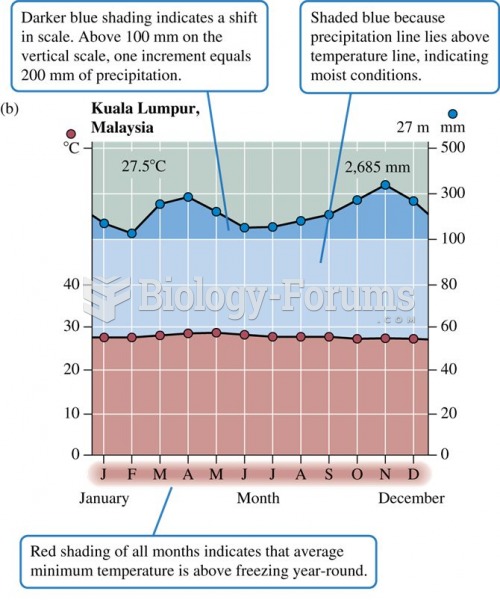Answer to Question 1
The major consequence of rising greenhouse gas levels during the 21st century is rising temperaturesthe amount of rise depending on the energy choices and other factors, such as population growth. Rising global temperatures are linked to two major impacts: regional climatic changes and a rise in sea level.
Equilibrium climate sensitivitythe change in mean global temperature that accompanies a doubling of atmospheric CO2is in the range of 24.5C, most likely 3C. The scenarios project a range of surface warming in 2100 compared with 19802000; for the B1, A1B, A2, and A1F1 scenarios the estimates are 1.52.8C, 2.34.1C, 3.05.0C, and 3.55.8C, respectively. The warming is expected to occur in geographical patterns similar to those of recent years: warming greatest at the higher latitudes and over land and least over the North Atlantic and southern oceans. Because of the warming climate, snow cover and sea ice will decrease and glaciers and ice caps will lose water, resulting in a rise in sea level. Permafrost in the Arctic is expected to thaw up to 90 of the upper layer. As the upper layers of the North Atlantic Ocean warm and become fresher, the thermohaline circulation is expected to slow down, but no models show it collapsing. Storm intensities are expected to increase, with higher wind speeds, more extreme wave heights, and more intense precipitation. The sea level rise, currently at a rate of 3 mm per decade, will certainly increase as a consequence of continued thermal expansion and snow and ice melt. Heat waves will become more frequent and longer lasting as the climate warms. Growing seasons will lengthen, and frost days will decrease in mid and high latitudes. Precipitation will decrease in already dry regions, and increase in wet regions; there will be an increase in extremes of daily precipitation.
Answer to Question 2
Deforestation is the removal of forest and replacement by another land use. Deforestation is caused by a number of factors, all of which come down to the fact that the countries involved are in need of greater economic development and have rapid population growth. The FRA 2000 study concluded that the current major cause of deforestation is conversion to pastures and agriculture.







